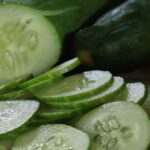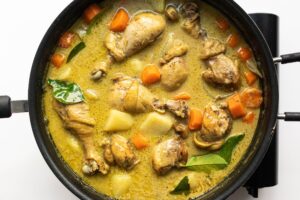Norway is known for its high food prices, and now they’re even higher than usual. New figures show an overall price hike of 13.7 percent in the past year, with the country’s big grocery store chains jacking some items up by much more.
Tomatoes, for example, have doubled in price and not just the imported ones that are affected by the weakness of the Norwegian currency, the krone. Locally grown tomatoes, mostly in greenhouses, are hitting the market now at a shocking NOK 67.90 per kilo (around USD 3.40 per pound), up from the old standard of around NOK 36.90 that itself was much higher than in neighbouring Sweden.
The price of eggs has also been making news, despite a boom in Norwegian egg production. “This is madness,” complained farmer and egg producer Bernt Bjørnstad on state broadcaster NRK’s nightly national newscast Dagsrevyen. The farmers’ own cooperative Nortura raised egg prices 9 percent, but then grocery store chains including the supposedly lower-priced KIWI chain raised the price of eggs packaged under their own house brand by a whopping 77 percent.
“We’re not getting any of that increase,” Bjørnstad claimed. He has around 7,500 hens at his farm at Brøttum south of Lillehammer. While the price he gets from Nortura did rise, it wasn’t even enough to cover higher costs for chicken feed, he claims, and his income has declined.
Eldorado-brand eggs sold to consumers, reports NRK, rose from NOK 1.83 to NOK 3.24 from June 2022 to June 2023, while First Price-brand eggs rose from NOK 2.08 to 2.63. They’re among egg brands sold by grocery wholesaler and retail giant NorgesGruppen’s KIWI chain, which bills itself as billig (cheap). KIWI spokesperson Nora Mile Helgesen told NRK that eggs had been sold at a loss “and we had to set up the price” of eggs to avoid raising prices on other items.
“We understand that the farmers want to be paid for what they need and want, and they should,” Helgesen told NRK, “but that’s not up to KIWI. The farmers get paid for what they’ve agreed and we take the costs of selling the product.” The chain had to apologize last fall, though, after effectively raising the price of eggs by changing their packaging: First the chain raised the price of a carton of 18 eggs, then reduced the carton to 12 eggs, charging the same price.
“I felt cheated and angry,” Thomas Andersen told NRK at the time, after the price of his omlette jumped by 74 percent. KIWI later lowered the price of the 12-pack, stating that they understood consumers had reacted negatively.
KIWI now has the largest share of the grocery market in Norway, and its parent NorgesGruppen is known for being highly profitable and owned by one of the country’s wealthiest families. NorgesGruppen also controls the large chains Meny, Spar, Joker and higher-end stores like Jacobs in Oslo. Prices for the same items also vary from chain to chain, with a vacuum-packed Frøya salmon loin (which cost NOK 69.90 at KIWI just two years ago) costing NOK 99.90 at KIWI last week but NOK 129.90 at a Meny, which often features a counter with fresh meat and fish (unlike Kiwi) and has higher rental costs. In addition to selling higher-quality goods, Meny’s customers often pay dearly for the convenience of doing all their grocery shopping there even though they’d save money if they bought standard items like milk, butter or even Frøya salmon at KIWI instead.
The higher food prices in June contributed to Norway’s overall rise in the country’s consumer price index, which state statistics bureau SSB (Statistics Norway) set at 6.4 percent in June. That ended up “much stronger than expected,” according to Marius Gonshold Hov, chief economist at Handelsbanken. While the overall monthly price rise was 0.6 percent from May to June, it was 2.5 percent for food.
“It’s unusual that food prices rose so much in June,” said Espen Kristiansen of SSB. Norway’s central bank has an inflation goal of just 2 percent, making it even more likely that it will raise interest rates yet again in August.
Consumers are left to simply be shocked by how tomatoes at the Coop chain cost NOK 67.90 per kilo last week, and a liter of milk has shot up to more than NOK 21.80. The price of fresh berries is up 19.1 percent, according to SSB, tomatoes are up 28.1 percent and imported products are affected by the weak krone, sending their prices up as well. Ripe avocados that cost around NOK 10 each last winter, now cost around double that at most stores in Oslo.
Source: newsinenglish































